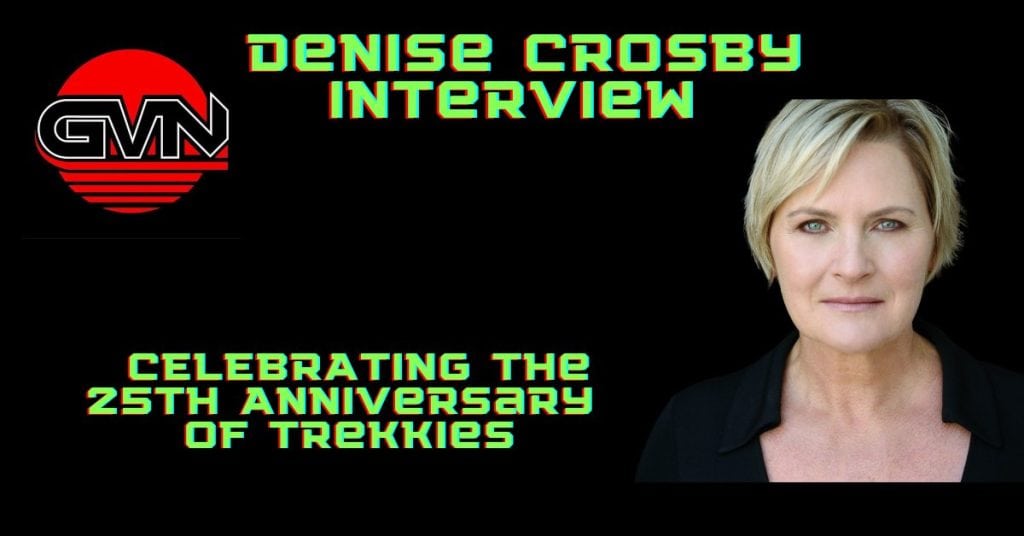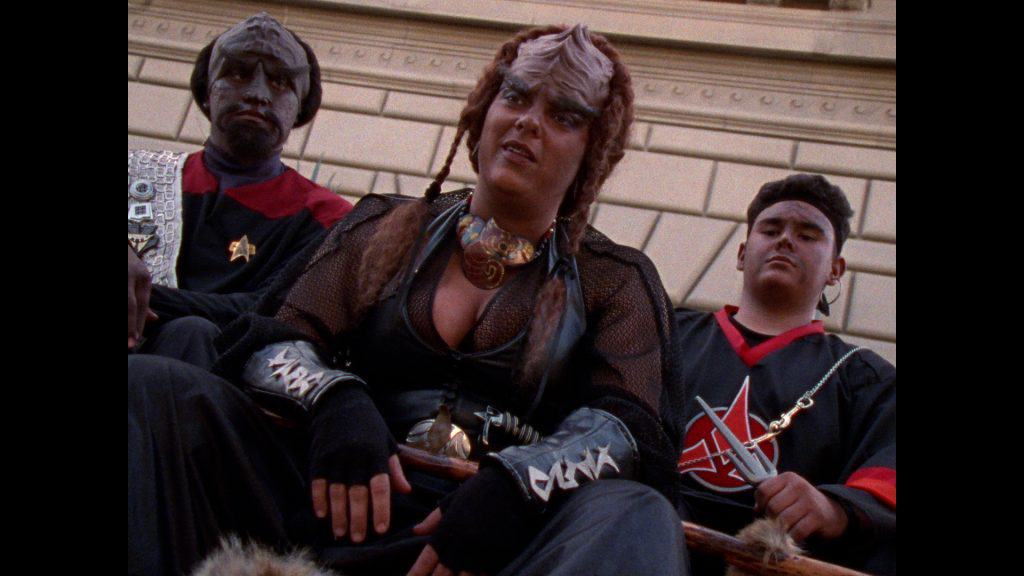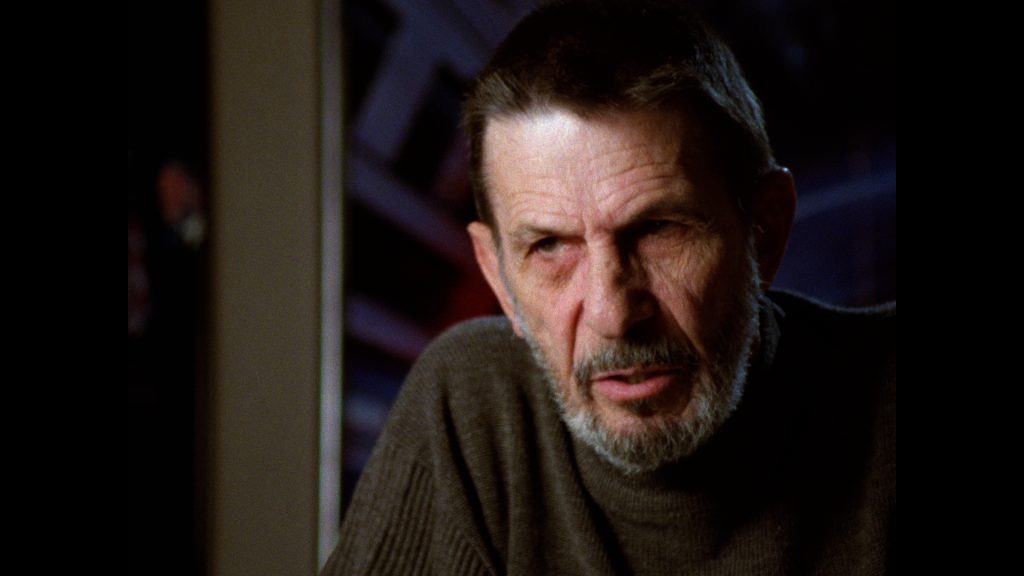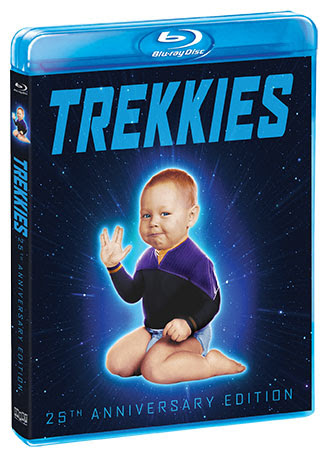Denise Crosby played Tasha Yar in the first season of Star Trek: The Next Generation, but this one-season stint, along with periodic appearances as Yar’s Romulan descendent Sela, changed her life forever. Even greater than her appreciation of this fan-favorite role was the love she gained for the fans from her numerous convention appearances. With the help of director Roger Nygard, this love evolved into the 1997 documentary feature Trekkies, where she functioned as narrator and co-producer that explored the good, the bad, and the weird of Star Trek fandom, all with great respect and love.
In celebration of the 25th anniversary of this landmark documentary, Shout! Factory has just released the film for the first time on Blu-Ray (read my review here), as well as in HD on digital platforms. I had the distinct pleasure of talking with Crosby about her work on the film, its enduring legacy, the unexpected influence on Galaxy Quest and much more.
The following interview has been edited for length and clarity.
Dillon: I want to start out by saying I am a very big fan of your film! I watched it a couple of times to review the new Blu-Ray, and I really found myself enjoying it a lot.
Denise: Oh, I’m so glad. Thank you so much!
Dillon: I’m a big documentary fan, and I think you do what a lot of great documentaries do, which is invite people in who may not be familiar with the subject matter. Trekkies is such a good entry point into this world.
Denise: Thank you so much. I mean, that really was our intention. Trek fans know what this is about, but we really wanted to have other people who may have never seen Star Trek really get this documentary. So that was great.
Dillon: That goes to one of the things I wanted to ask you. I watched this with my wife, who’s seen the J.J. Abrams films and has a passing familiarity with Star Trek, but isn’t deep into the world. She found herself after watching this, a little bit more interested in delving into that culture. You would think that a lot of people watching this might already be really immersed in this culture, but have you heard any stories of people getting into Star Trek from watching this documentary?
Denise: I’ve certainly heard of people watching the documentary who have no interest in watching Star Trek, but were fascinated by just the kind of social aspects and and the kind of pop culture aspects of the documentary. I’m sure that there are people that might go and now take a deep dive into the whole genre, you know, the whole franchise. The documentary just stands alone. It wasn’t made to highlight Star Trek in any way. It was really to try and let this phenomenon speak for itself.
Dillon: Absolutely, and I think you were really going for a good balance in your approach. You weren’t making fun of any of these fans because you obviously have love for them, but you also weren’t trying to make a puff piece or anything like that. I know in the new documentary supplement that you made for the 25th anniversary Blu-Ray, you and Roger [Nygard] talked about how you kind of sanded off some of the rough edges after talking to some of the fans after the first screenings. Can you go a little bit into how you struck that balance with the fans?
Denise: Well, first of all, the main goal Roger Nygard and I had was to be sure not to make fun of anyone. That was not our intention, and we ran things by other fans, by people we knew who were very much involved in this franchise for years. There was also a gentleman named Richard Arnold, who was this historian of all things Star Trek and was Gene Roddenberry’s right hand man, and he was very helpful in anything we wanted to run by him in terms of “Is this accurate? Is this something that exists? Is this something we should look into more? Who are these people? Have you heard of this kind of thing?” You know, all of that stuff, we really wanted to make sure that we weren’t stepping over any lines. Yet, at the same time, we kept the cameras open and let people talk freely about what their experiences are and who they might be – really tell us their story.
Dillon: It’s not just the fans that you’re hearing from; you are getting a firsthand account of how the actors have interacted with the fans over the years. I really enjoyed getting to learn how you rearranged one of the conference room settings to make it look like several different filming locations whenever you were interviewing at the convention.
Denise: That was that first weekend we were filming, that was our first footage. There was a big convention at the Airport Hilton that most of the original cast was attending. I was lucky enough to have been invited to that convention, so of course we could get in. Roger brought this film crew with him. The people who were doing the convention were doing it for charity that benefited the Motion Picture and Actor’s Fund. You know, certainly in the beginning, no one quite knew what we were doing. It was like, “Can I? Nichelle [Nichols]? Would you sit down and talk to me just about your experiences?” And it was like, “Oh, yeah, sure.” You know, it was so innocent on so many levels. By chance, we happened to get these stunning interviews all in one weekend.
Dillon: That’s pretty amazing. I don’t know if it came from that weekend, but one of the scenes that impacted me most in this film – and I’m not sure if this is what he would have wanted me to take away from this – but it was the scene with James Doohan, who played Scotty on The Original Series, telling a story about a fan who was suicidal. He corresponded with her over years and years, and it eventually led to a good resolution, but what I took from that story is that kind of thing is a lot of pressure to have on these cast members – to hold the fans’ emotions with them. Can you talk a little bit about how the actors deal with interacting with the fans in that way, and the pressures that go along with that?
Denise: You know, that’s really a very poignant, hard hitting moment in the film that, of course, took all of us by surprise. You’re just praying that the cameras are working and film is rolling when somebody comes up with this, this kind of heartfelt nugget. And I know that all of us, I would venture to say all of us, have been in some moment like that. I haven’t necessarily had anyone threatening to kill themselves, but I certainly have had people who are feeling fraught and emotional and in struggles in their lives, and they get some sort of comfort from this sort of the ideology of the show and therefore it’s transferred onto us. You know, the inherent message in Star Trek is one of such…
That’s so funny. I just got a text right now as we’re talking from, you know, the 14 year old boy in Trekkies. Gabriel Köerner just texted me.
Dillon: Oh, wow, so you keep in touch?
Denise: Yes, we do. Not a lot, but yeah. He said, “Cool. Just saw you had an interview on Trek Movie.” Okay, he’s watching. *laughs* You know, I wanted to make sure we kept up with his progress and his growing up. He was so open to us and available, and he’s gone on to do all kinds of special effects. And the last I heard from him before today, he was working on Picard. How’s that for coming full circle? You could see that, I knew that was coming when I met him at 14. He’s so articulate and talented.
So what I was starting to say was that the inherent message of Star Trek is this utopian place that we’ll get to as human beings. That not only will we survive, but we’ll actually be better, the future will be better. You know, so much of science fiction is dystopian, where we have blown ourselves up and we’re climbing back from devastation. Will we make it or not? It’s very questionable. So that creates a kind of place of hope. And I think people transfer it onto us. Television has a way of doing that. When television comes into your living room or your bedroom, it’s a very intimate relationship people get with these people on TV. Then, of course, we’re available, we go to cons. We go to Star Trek conventions, or Comic Cons or signings, so people are able to approach us.
We often get messages or comments of very personal, very, very moving things. I think we’ve learned, all of us in our own respective ways, to kind of handle that and protect ourselves. I mean, obviously, none of us are therapists, but you do try to try to listen and try to be encouraging. Jimmy gave a perfect example of this. He listened to this woman and stayed in touch with her and kind of got her through a lot. That’s really all you can do, you know?
Dillon: Every one of the cast members seems to have a very special relationship with the series and with the fans. How did making this film change your relationship with the series and the fans?
Denise: I’ve always been accessible. I’m not the type that needs to run interference. I’m truly interested in the fans, and that’s what sort of spurred on the documentary to begin with. I was going to these conventions and people were there to see me and were interested in talking to me about my life, but I was curious about their life. It just made me understand that this is a joy for people, this is a passion just like anything else. And it’s probably one of the better things to be obsessed about if you’re going to be obsessed about anything. The fans have a general kind of high level of intelligence, and they’re interested in the planet and space and technology. It just confirmed that to me all along.
Dillon: You’ve lived with this movie for 25 years, you’ve obviously been involved in Star Trek for even longer than that. How does it feel to be celebrating 25 years of this film with this new Blu-Ray and looking back upon the film? Maybe you have some of your favorite memories associated with screening this film?
Denise: This is tremendous. This is what we always dreamed of doing. Shout! Factory has been so generous and supportive of us. We did this film like a real guerrilla filmmaking team. We were learning on the fly, we were making it up as we went. That is the real delight. Just seeing something happen, seeing the final product. We did this from our hearts. We had so much fun making this film because we were just wide eyed and fresh. We were following our noses the whole time. There was no agenda.
Fortunately, Roger is an incredible editor. He was able to sort of assemble as we went. We were way out in the woods here making a movie. The fact that we can now see it on Blu-Ray in this beautiful cut, and let it live on the Video On Demand platform. Having it back on Amazon and Hulu and iTunes, all the places where people can see it and new people discover it – we really feel good about that. We are also now in the Motion Picture Academy, the Academy reached out to us and they want a copy of the film. It will be housed in the Academy for all time. It’s wonderful. It all kind of came together beautifully.
Dillon: I’m so grateful that this movie is finally on Blu-Ray, I think it’s what it deserves. I think part of the enduring legacy of this movie, as you said on the special features, is that you really pushed for a theatrical release for this film. You were very adamant about that.
Denise: Well, Roger reminded me in the talkback how adamant I was, which I can only say had everything to do with my naivete. I mean, apparently, that isn’t what you normally would do, but sometimes ignorance is bliss. We want it to be seen theatrically. The other thing which I don’t think we talked about in the talkback was, after we made Trekkies, we started to enter it in all kinds of film festivals. That’s one route that independent filmmakers take because hopefully it will make people notice and people will write about you and you can get your film sold that way. The one thing we wouldn’t do, we wouldn’t give a studio or producers a DVD. We said, “We will screen it at your convenience in a screening room or theater, but you have to come into a theater to see it.” What I didn’t want to happen, which I knew did, is that they would pop the thing in, they are on the phone, 10 minutes later they eject the disk. They’ve seen 10 minutes of it and make their mind up that way.
We did things like that, that really were fairly bold. But…they did it. We would have screenings periodically if they couldn’t make the festival. I did a screening at Universal CityWalk one time and the people from Universal wanted to see it. A couple days before, a friend of mine was in development working for the producers that were making a film called Galaxy Quest. They had hired new writers who had never been to a convention. She asked if the writers from Galaxy Quest could see the movie. I said, “Sure, have them come.” So they came to the Universal screening. When Galaxy Quest was being made, I heard that, oh God, who’s the lead?
Dillon: Tim Allen.
Denise: Tim Allen! Tim Allen handed out copies of Trekkies to everyone on the cast and said, “You want to know how to make this movie? Watch this.” I’ve never run into Tim Allen to ask him to really verify that story, but that was what was told to me from somebody on set. So that’s a great nod.
Dillon: As we wrap up, what do you want people to take away from the film? And just maybe any updates on Trekkies 3, if you want to offer them?
Denise: You know, I want people to be able to see themselves in this movie, to open their hearts and minds and know that these are not some “quirky” people. I mean, we’re all quirky, we all have our eccentricities. The whole point of this is to embrace them, not pretend they are not there or ignore them, but to embrace them and have some humanity in all of this and some delight in our differences. That’s the joy of this show.
In terms of Trekkies 3, Roger and I, we feel there will be one, and we have some ideas for one, but it won’t be for a little while. I mean, we still have Trekkies 2 to kind of get handled, but for now, I very much would like to do it. I always saw it as a trilogy. There’s been so much more that’s happened in the last 25 years. I’d really like to sort of compare and contrast and see what’s changed and what’s different. And just, you know, wrap it up after the third one.
Dillon: That sounds amazing. I look forward to seeing that whenever you finally get it released. And if Trekkies 2 is coming to Blu-ray, that makes me even more excited.
Denise: I think it will. I think it’s coming. We first got this baby to take care of and, you know, fingers crossed we can just do the next one.
Trekkies: 25th Anniversary Edition is currently available to purchase on Blu-Ray.
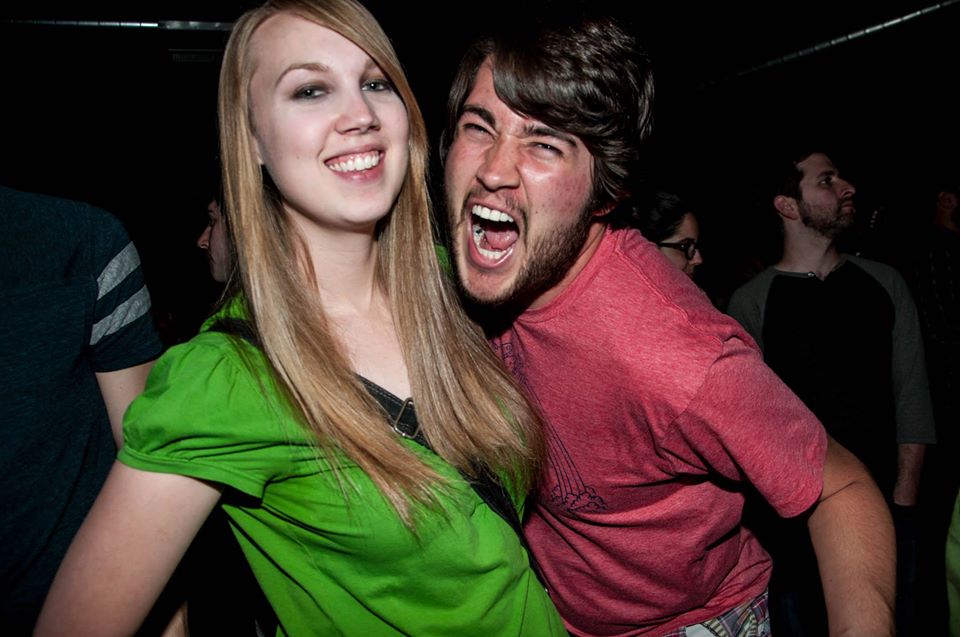
Dillon is most comfortable sitting around in a theatre all day watching both big budget and independent movies.


